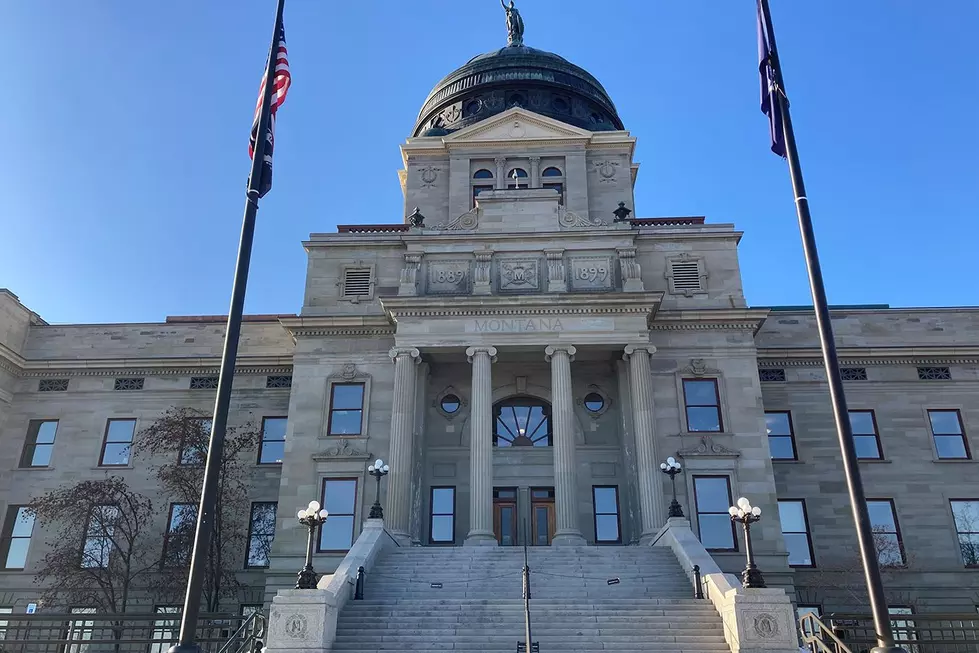
Bill aims to undo 2021 ballot initiative attorneys argue is unconstitutional
(Daily Montanan) A bill heard in a Senate committee Monday aims to undo a law passed by the Montana Legislature in 2021 that subjected ballot initiatives to extra review by interim committees and the Montana Attorney General.
At the hearing, multiple attorneys testified the additional oversight is unconstitutional.
Senate Bill 153, sponsored by Sen. Brad Molnar, R-Laurel, seeks to remove portions of Montana Code Annotated that were added when lawmakers passed, and Republican Gov. Greg Gianforte signed, House Bill 651 in 2021.
Molnar called House Bill 651 “patently unconstitutional” at Monday’s hearing in the Senate State Administration Committee. He said he mistakenly voted in favor of the bill on third reading in 2021 because he lost his “cheat sheet.”
The 2021 bill added extra reviews of ballot initiative proposals, including having an interim committee review and vote on them; having the employer of paid signature gatherers pay a fee and register with the Secretary of State’s Office; and having the attorney general determine if the initiative would cause “significant material harm” to businesses in Montana.
If so, that language and the determination of the interim committee would be added to the ballot petition.
Two years later, however, Molnar said if that law’s language stands, Montanans stand to pay even more money to fight laws challenged as unconstitutional. The Governor’s Office is asking for $2 million this year to defend such bills, he said.
He pointed to the Montana Constitution, saying the 2021 measure limited people’s “supposedly unfettered ability to petition their government.”
Among those who testified in favor of this year’s bill were retired Montana Supreme Court Justice Jim Nelson, whose testimony was read by Helena-based attorney Mark Mackin.
Nelson argued, as he did in a commentary published last year by the Daily Montanan, that the Constitution vests political power, as well as the authority to make new laws and change the Constitution, in Montana’s citizens.
He said in his testimony that HB651 gave the power to the attorney general to determine whether citizens should be able to bring an initiative instead, but the constitution says the only public official authorized to be involved in that process is the Secretary of State’s Office – and only for the purposes of filing the petition, gathering the signatures and determining if they are sufficient to be put on the ballot.
“A constitutional right is worth nothing when the legislature and the governor can make the exercise of that right so complicated and difficult that it becomes not worth the effort,” Nelson’s testimony said. “With House Bill 651, the legislature and the governor did precisely that.”
Last year, Attorney General Austin Knudsen declined to review a proposed initiative, arguing the new law only applied to statutory initiatives, but Secretary of State Christi Jacobson allowed signature gathering to begin on the measure that sought to cap property taxes in Montana.
Groups had sued backers of the measure, arguing the new law had not been followed and they should not be gathering signatures to try to get the initiative on the ballot.
A judge ultimately sided with the defendants. Matthew Monforton, one of those defendants, testified in favor of the bill to repeal the law on Monday, saying the lengthy process had hamstrung his efforts to collect signatures.
He called the law in place currently “a hypothetical pocket veto” – saying it gives interim committees and the attorney general the power to string along a vote for months. He said Jacobson had originally ignored the law.
“I’m a conservative, and I’m politely warning the committee that if HB651 is not repealed, there will be multiple lawsuits,” he told the committee. “You will lose them, and you’ll deserve to lose them. We’re asking you to pass SB153, repeal HB651, and save Montanans a bunch of unnecessary legal fees.”
Attorney Jonathan Motl, who specializes in ballot initiatives and is a former commissioner of political practices, said the current law would have prevented many issues that came before 2021 from ever reaching the ballot and said passage of SB153 would return statute to a more “constitutional place.”
However, Charles Robison, representing the Montana Chamber of Commerce, told the committee SB153 should not pass because HB651 allowed “more public input.”
He argued that instead of only reaching most citizens through advertisements, the current law created a process where citizens could testify before interim committees and debate the pros and cons of a measure. He said it gives more “educational information” to voters.
Darryl James, the executive director for the Montana Infrastructure Coalition, said he felt the current law gives more transparency in the initiative process, as did Alan Olson, the executive director of the Montana Petroleum Association.
“Current law protects the citizens by keeping all these deliberations in the daylight instead of having to rely on 30-second sound bytes on TV,” Olson said.
But in his closing argument, Molnar disagreed, saying it was easy for initiatives to go stagnant and not meet their deadline because of the process in place from the 2021 law.
“You get public participation by allowing the public to participate, not by telling them to start earlier,” Molnar said. “I admitted I was wrong. I don’t think there’s a constitutional attorney in the world that would tell you to kill this is right.”
